![]() The thirteenth year of a girl’s life should be a sweet time. She is in between childhood and adulthood. Dreams, hope and excitement make it an amazing period of life. This is certainly not the time to get married and have babies.
The thirteenth year of a girl’s life should be a sweet time. She is in between childhood and adulthood. Dreams, hope and excitement make it an amazing period of life. This is certainly not the time to get married and have babies.
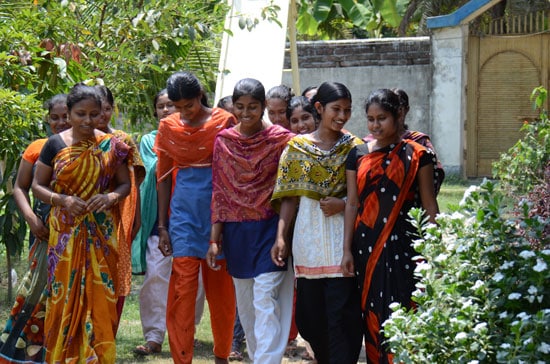
However, for many Bangladeshi village girls illiterate parents force them to marry at this age. After marriage, they are exposed to a physical relationship for which they are not prepared. This creates disorder in their lives.
Within a year of marriage, most girls give birth. An extreme load of household work at their in-laws’ houses and their physical deficiencies make them weaker every day, and they are often badly beaten by their illiterate husbands. Eventually, they are thrown out of their in-laws’ houses, often returning to their parents’ houses to become burdens to their families.
This scenario is the reality for thousands of young girls living in remote areas of Bangladesh. At the Verchi Child Sponsorship Program (BD-308) child marriage is a threat. Girls from Muslim or Hindu families are always in danger of child marriage. However, because of superstition and ancient cultural practices, Hindu families are more fundamentalist about child marriage.
In the last couple of years, the four talented girls enrolled at the center were forced into early marriages by their families. These Hindu girls were registered when they were between the ages of 5 and 8. For more than five years, they were nurtured with care, love and continuous support.
The girls were forced into marriage without the awareness of the center staff members and now live in different villages far from the development center.
Girls, especially those from Hindu families, have the mentality that being a girl is unfortunate and that they are created to serve in their husband’s house. Because of the dowry system, illiterate parents are not happy with girl children. This dowry system causes girls’ parents to pay huge amounts of financial and material gifts to the girls’ husbands during their weddings. As a result, parents want their girls to have husbands who demand less.
Many men think young girls’ demand peaks at age 12 or 13, so they compromise on the dowry amount, and parents let their girls get married without thinking about the consequences. In almost 99 percent of the cases, girls cannot protest against getting married, as they are not allowed to make decisions about their lives. Sushama is an exception among the village girls.
Sushama is a Compassion-assisted child and well aware of her rights. Her parents tried to make her marry, but she refused. Sushama’s parents previously forced her elder sister to get married at 13.
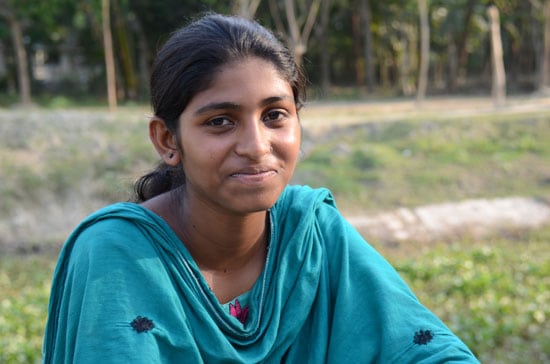
Though her parents pressured her to marry, Sushama refused. She was badly beaten by both of her parents. Sushama went to her development center and told the center director everything.
The director, along with a female social worker, immediately visited Sushama’s parents. They talked with Sushama’s parents, but her parents said they did not believe in child marriage. Unconvinced, they warned her parents they would bring police next time.
According to Bangladeshi law, girls are not allowed to get married before age 18. This law is weak in remote villages. Police cannot take action in rural areas because of the lack of complaints or protests.
In Sushama’s case, she protested with her all strength, and Compassion was behind her to make a formal complaint. As a result, the local administration supported Sushama.
The center also immediately arranged a rally against child marriage, an event in which local governmental bodies participated. Compassion-assisted children led the rally, which traveled around the village.
After that event, the demerits of children’s marriage become an important topic at the parents’ meetings at the center. Center staff were frustrated about the four girls’ marriages, but they were motivated by Sushama’s protest. Sushama became an example for other girls.
My parents forced me, but I denied getting married this early. My elder sister got married when she was 13. She had to quit her studies. She suffered from different sickness and couldn’t take care of her child properly. Her husband also beat her often. I don’t want that life.
There were two sources of strength for Sushama. The experience of her sister’s life, and the teaching she received at her development center.
The center uses a curriculum for teenage girls which clearly describes the demerits of child marriage. Compassion staffers also take awareness classes, in which they discuss the necessity of education for girls, as well as health care and ways to prevent child marriage.
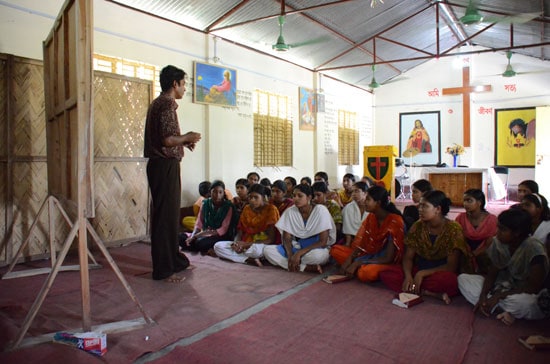
After Sushama took a stand, girls at the center are more engaged in different activities to develop awareness against child marriage. They make their own songs, dramas and slogans against this social curse. One of their slogans is: “Stop Child Marriage for a Better Life.”
Compassion’s initiative is well appreciated by local government officials, but illiterate parents are not very happy. There is a big challenge ahead to convince parents child marriage is not a good option.
Sushama’s story is one example, but there are many development centers in Bangladesh facing the same challenges. The curse of child-marriage damages the crops of Compassion’s years of hard effort.


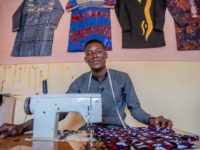

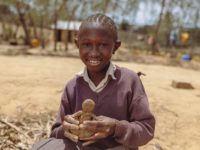


4 Comments |Add a comment
From what I understand to be the book of Jasher (the book of Jasher is mentioned in the Bible) it says that Rebecca was 10 (ten) when she married Isaak, and it also referred to her as a young woman.
I am so glad that girls are being enabled to advocate for themselves in such difficult circumstances. I know that child marriage is an issue in other countries as well, and I often wonder if the girl I sponsor is in a region where she might face similar circumstances. What other areas need special prayer and support in this issue?
Awesome!!!
Thank you so much for this article. I want to be very aware of the problems my kids in Bangladesh, and their projects, may face. I always enjoy your articles so much. Thank you for your contributions.